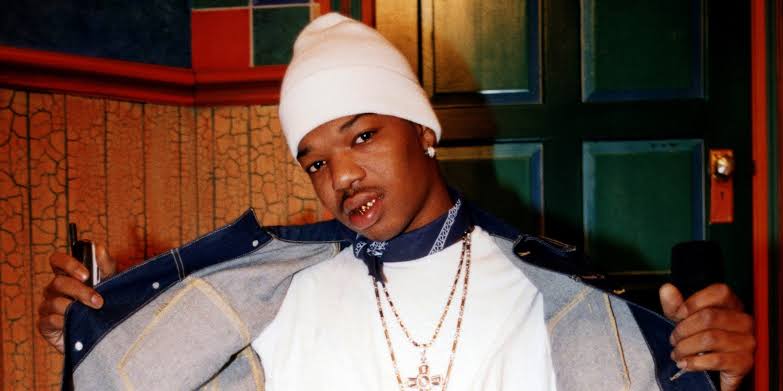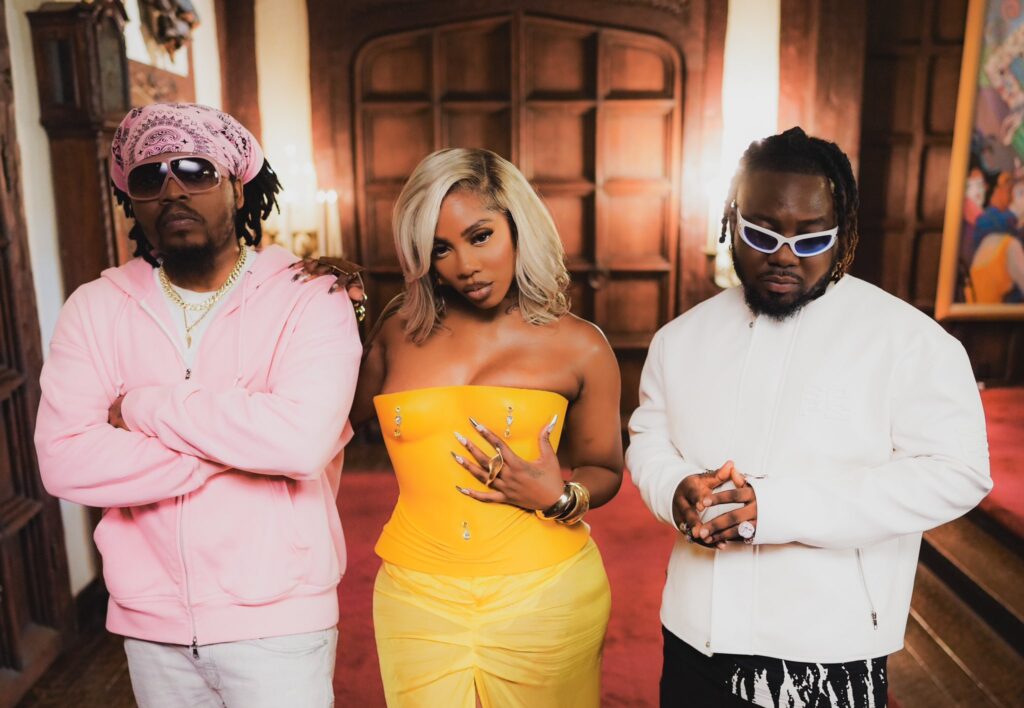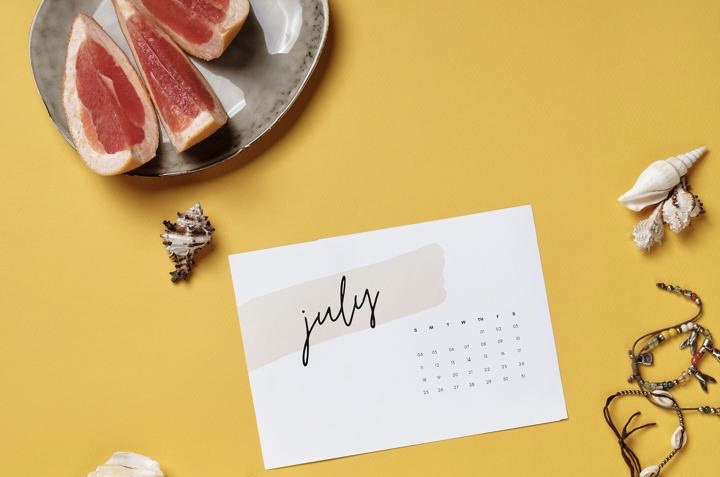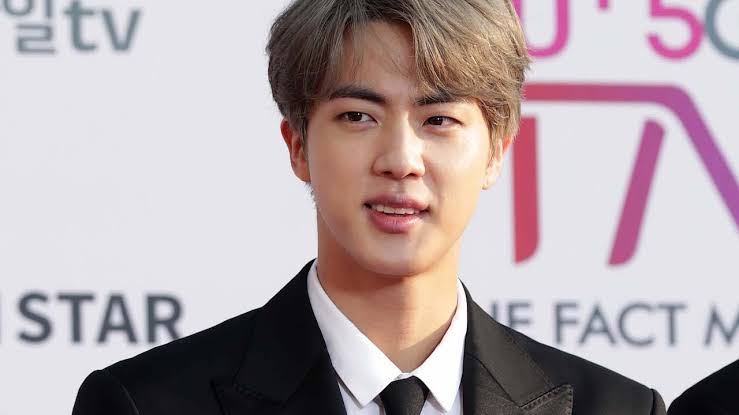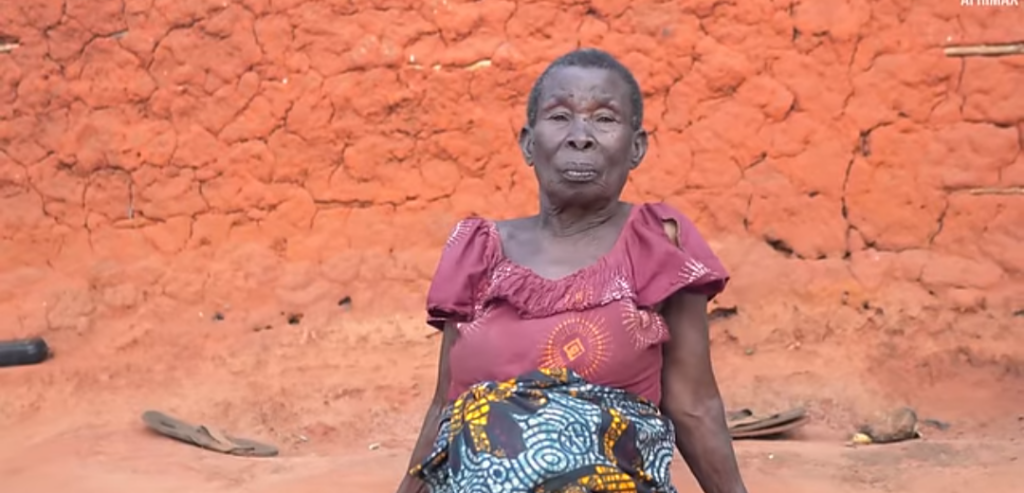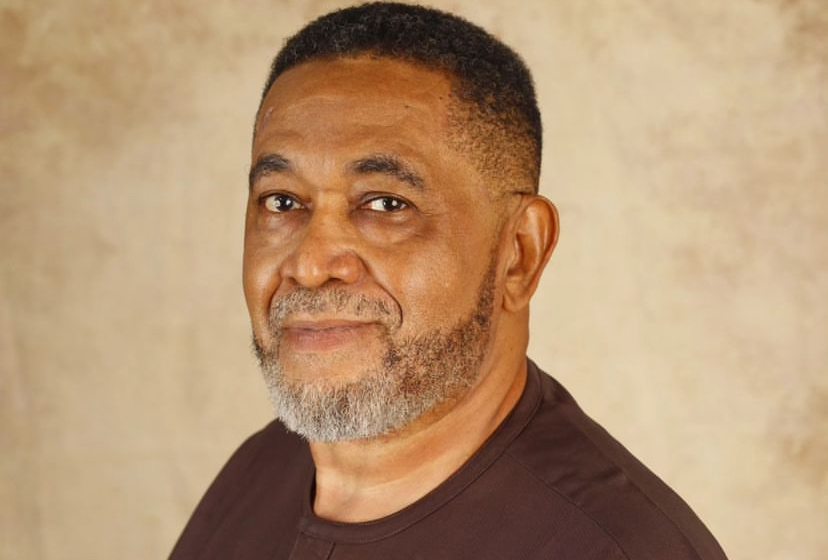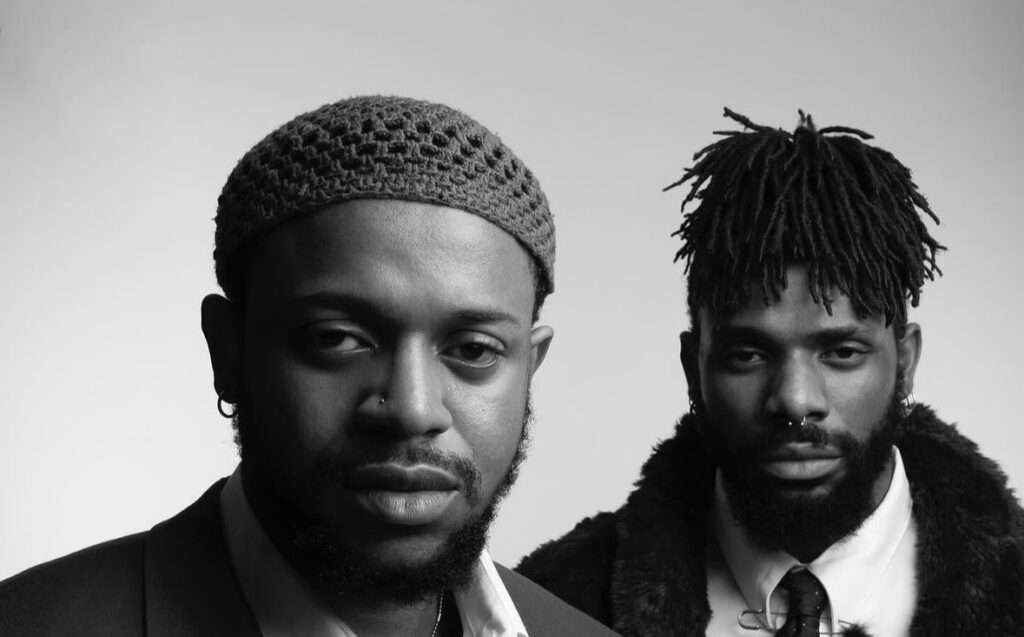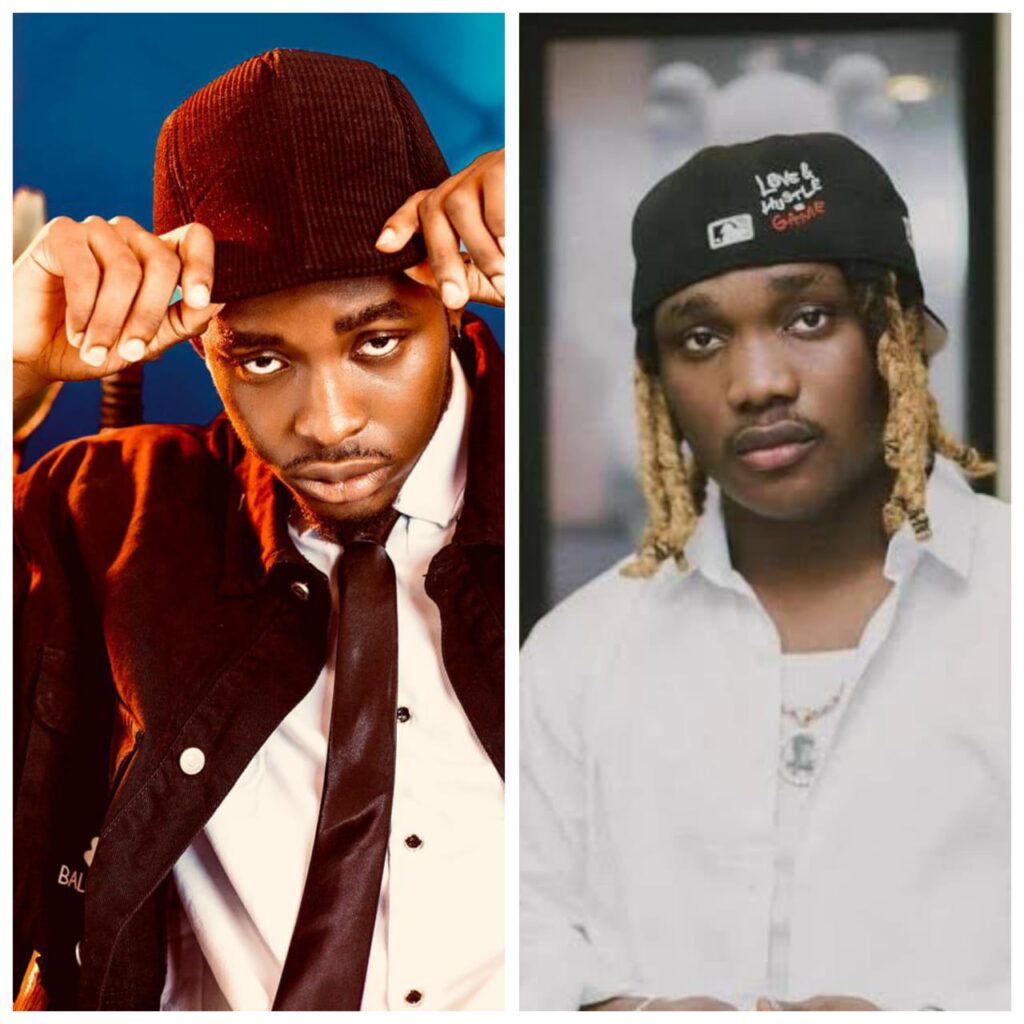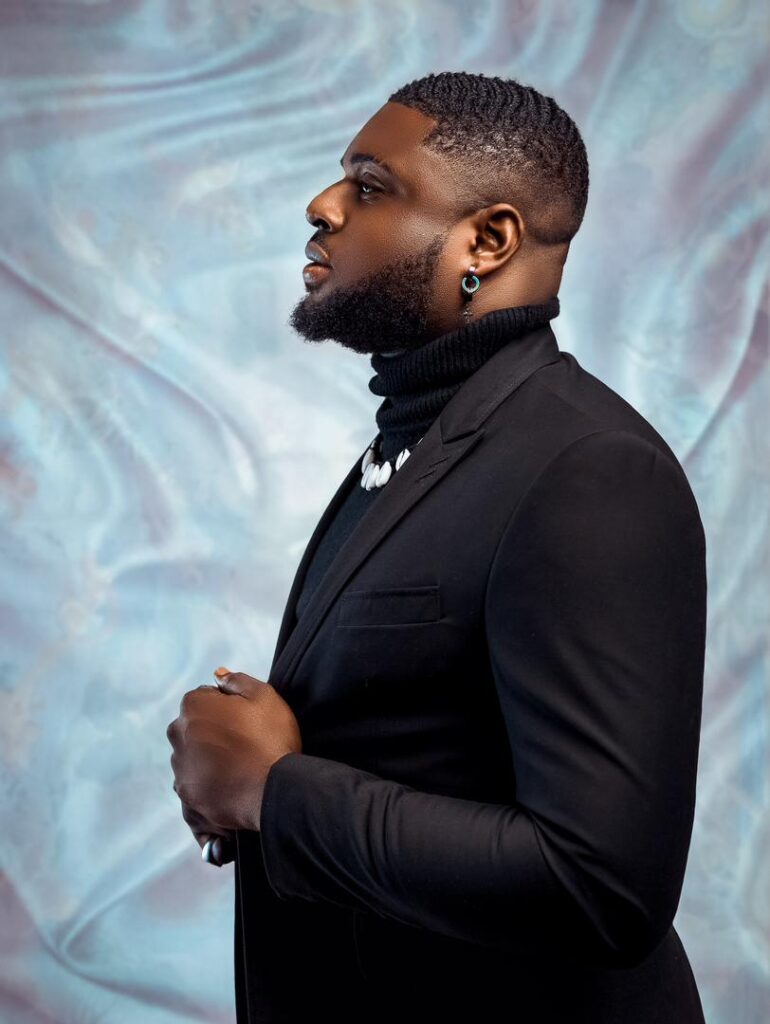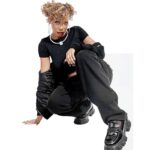 Earlier this month, everybody watched with hearts in their mouths, as the 66th Grammy Awards were held in the world entertainment capital, Los Angeles. While the country’s best bets tilted across favourite Nigerian superstars – Burna Boy, Asake, Davido, and Ayra Starr – to clinch the award for Best African Performance, it came as a tasteful shock to many as South Africa’s Tyla emerged winner with her pop-fusion, titled, Water.
Earlier this month, everybody watched with hearts in their mouths, as the 66th Grammy Awards were held in the world entertainment capital, Los Angeles. While the country’s best bets tilted across favourite Nigerian superstars – Burna Boy, Asake, Davido, and Ayra Starr – to clinch the award for Best African Performance, it came as a tasteful shock to many as South Africa’s Tyla emerged winner with her pop-fusion, titled, Water.
Despite that category being a new one at the Grammys, it was worthy to note that two of the five songs nominated were made with Amapiano elements. Afrobeats music is continuing its moment in the sun and it now seems that its creators are finding new inspiration in Amapiano, milking the potentials of the piano and percussion-driven sound to export more Afrobeats music.
Following the country’s Grammy loss, conversations were sparked on social media among industry stakeholders on whether it’s time or not to let the Amapiano rush end. Also, a number of fans have expressed concern about the dominance of Amapiano-laden Afrobeats, now popularly known as Naijapiano, on new music charts and even dancefloors. Everyone wants a bit of diversity.
Everyone wants their bragging right for originality and creativity, as well. Nobody knows what exactly would usher the next sonic shift in Afrobeats’ lingering ascension to the top. But the people who would eventually unlock this transition are the musicians, producers and record label executives.
This week, The Guardian Music gets up close and personal with industry expert, Sheye Banks, real name Seyedinmu Ogunsanya, an experienced A&R, who’s helped BNXN, Kizz Daniel, Rema, and a lot of others scale up their careers with strategic music releases. A juggernaut of talents, Sheye Banks is also acclaimed as a radio journalist working with Soundcity FM, as well as a celebrity hypeman. And we explore the Afrobeats versus Amapiano discourse, nitpicking his thoughts on the impact of these regional fusions on Afrobeats, as well as the future of Afrobeats, and why Africans should work towards building its own version of the Grammys.
Tell us, what does it mean to be an A&R?
Okay, so an A&R stands for artist and repertoire. A lot of people have definitions for what that means, but generally an A&R stands for artist and repertoire. That is somebody who’s in a division of a record label or is operating as a freelancer and handles music publishing, overseeing and scouting artistes, talent development, artiste development, and also trying to find and create a sound or a niche for already established artists. And then finally, is also generally responsible for PR and promo.
What are some of the most recent projects you’ve worked on as an A&R?
So I’ve worked on some projects with BNXN. I worked on Gwagwalada for BNXN featuring Kizz Daniel. I worked on Like for Iyanya. I worked on a lot of Kizz Daniel’s number 1 songs, except for this current one. I also work with Joeboy as an A&R. I worked on Joeboy’s Body and Soul project, as well as his Body, Soul and Spirit EP. I have worked with Reekado Banks. The list is endless.
How did you venture into the A&R space?
I’ve always had love for music and my career path started as a broadcaster. But there comes a time where, you know, as a broadcaster, you need to do some other stuff to make money because your salary may not be enough. So, I became a hype man. I became a hype man a little over 10 years ago. Around 2016, I picked up a knee injury and it affected my hype performances, so, I knew that I couldn’t perform as much as a hype man. And, then, in the process of recuperating, I started to research on some of the other things that I was good at that I could tap into. I found out about A&R and it became so easy, because I was still able to pursue my love for music, but this time it had to do with more of the business side of it, as well as grooming people. It had to do with leadership. It had to do with the business. It also had to do with understanding the times and seasons. I had to do a lot of free work. I had to harness my craft by trying to just experiment on new artistes and new producers because I have a management company that handles some producers and artistes as well. I had to start doing that and that was how I was able to get onto the A&R scene. I would also say that it was not easy at first, but because I was in a position where I was already doing something via radio and building influence, I was able to convince a lot of artists, especially those who felt like they are their own A&Rs, that it’s important for you to have an external party that helps you to see music from a side that you’re not seeing it from.
What were some of the first projects you worked on?
The first project I worked on was for an artiste that lives in Canada right now. He’s married and with kids now. He was on The Voice Nigeria. His name is Chris Rio. I handle Chris Rio’s project. He is no longer active in the Afrobeats scene per se, but that was my first project. My first major project would have to be some songs I’ve done with Jaywon in the past, but my first most recognisable project to date will be with Kizz Daniel. I worked on the LIE project. And then we released the Barnabas EP that had a good number of hits like Oshe, Pour Me Water, among others. After that I worked on Iyanya’s project. Then I also worked with BNXN throughout his rise to fame, from his breakout song, Spiritual with Zlatan, to Gwagwalada. I have also been involved in Rema and Ruger’s rollouts, respectively.
Can you break down the creative process of an A&R?
I think it has to do with your creative diversity. As an A&R, you need to be able to picture yourself as an artist and as a consumer. And then, at the end of the day, what supersedes the balance between being an artist and a consumer is your entrepreneurial creativity. So, what it means is that, at the end of the day, when you find out what is different, what works, what is obviously going to make the artiste stand out – maybe if you blend multiple sounds with the Afrobeats genre; or you know if you blend a different brand rights for the artists, if he looks good, you’re going to eventually picture the time and the season for when a song should come out. I’ll give a practical example. Magixx’s Okay came out at the right time where Nigerians are somewhat going through a lot. And, you know, just the reminder to say you’re going to be okay, right. So, at the end of the day, you’re going to have to look at it from the artists perspective. He’s going through like a, like an evolution in his career. That is the artistic side. As the businessman, we’re going to look at, how does this tap into an audience for me? Am I going to be able to get into a new market? This artiste already does xyz in this market, but I’m going to get into a new market if I try this out. Now, what this means as an entrepreneur is for you to decipher how can I quickly tap into this and for how long? And when do I tap into it? You ask the Ws and the H – you know When? Where? What? Why? and How? So, these are questions that you ask yourself and you know exactly when to take the first move.
Tell us about one of the toughest decisions you have to make on a project as an A&R?
So, a lot of artistes are very spiritual about their art and they like to treat it like their babies. So imagine saying your baby’s stupid. Or your baby is not well brought up. Telling artists that they need to work on how they deliver the music, I think, is one of the biggest slaps on their face for them. And, significantly, for me, I would say that on Kiss Daniel’s lyrics in “Buga” where he said, ‘go lo lo lo’, I came up with that but I wasn’t feeling the ‘Buga won’ response. And, I just feel like maybe it could have been a little better. But, apparently, it became one of the best things that happened to that song. Kizz Daniel reminded me of how I said that. So, I think one of those situations like that where from time to time you have differences with artistes, and your views don’t always align but sometimes you just have to do what is best. You have to be professional and understand that you don’t know everything, but you just have to guide them to what works.
Every Friday, a huge chunk of Amapiano-laden songs dominate our new music releases. Why is everyone leaning towards Amapiano?
In my honest opinion, I think Amapiano is the new pop. And it would continue to be the new pop until it stops being popular. Pp is pop culture, right? And whatever is popular is what people will jump on. I remember the era where we had the Banku music, you know, and we had the pon pon sound.
They were eras and they became pop music, if you remember. Any artiste jumping on that sound, in today’s music climate, would be considered to be making old music. So, I think at the end of the day, it’s all about time and seasons. It is about understanding what is popular at this point in time; because a number of us industry gatekeepers or influential people in music may be able to say that Amapiano has run its course, but you cannot really say that that is the end of Amapiano, except you feel the pulse of the entire population statistically.
Now you need to go to the streets and listen to what they listen to. Are they consuming this music? Or are they really tired of listening to this sound and prefer playing stuff from back in time? Or are they playing some alternative sound from their audiences like Fuji or Juju? What exactly are they consuming? And if you notice, even artists like Seyi Vibez have been infusing Fuji, Juju, and all these different elements into what we already know as Amapiano, or Naijapiano or Ourpiano.
At the end of the day, it takes the general population, not the statistical few, not a small sample of industry gatekeepers, to decide if a song has had its course or not. That’s that’s one aspect of it. And what I think would be the future of Afrobeats and what could be the popular culture in the near future, by my calculations I would say that Afrobeats is going to lean and tilt towards a fusion of Afrobeats, with some elements of Amapiano and Asian sounds including Chinese, Japanese and even Korean Pop.
I see the shakers and log drums and elements of Amapiano staying in Nigerian music for a minute; because they have better representation for African sounds than some of our sounds have done in a minute. I personally think that Nigerians will just especially if Nigerians still want to fly the flag of Afrobeats as foreigners, right, they’re going to have to understand that evolution is a constant thing.
So amapiano is going to be one of those elements that we just have to keep evolving and up and running with. It’s not something that will just fade away and people will stop using it. People are going to take elements of Amapiano and infuse it into different cultures and different sounds from different climates to make something. Even South Africans still don’t think that what we make is Amapiano. So it’s going to be an evolution of fusions. That’s what I think.
So, you are basically admitting that Amapiano is here to stay. You also seem to agree that, despite its popularity, it’s likely to still have a decline at some point and give way to other less popular genres to emerge.
I’ll give you a practical example. I started a sub-genre called Afro hype, and that sub-genre has made way for a lot of hype men to make hype music. I have an album out called Statement of Account and prior to that I have two hype EPs out where there’s just hype music, you know, and what predominantly thrived on that sub genre was Amapiano. Amapiano gave a lot of hype men a boost in their careers. If you check, not a lot of hype men jump on the regular Afro pop sound as we know it. Amapiano makes it easy for you to drop a Lamba to keep moving right.
That’s exactly what Amapiano did; because it gives a more solid representation of Afrobeats. For Nigeria, we’ve been able to evolve the Amapiano sound by taking some elements of the original Amapiano and fuse it with several parts of our culture and experiences and shape our reality to create something entirely new. Do you understand what I mean? So Amapiano, in itself, from the South African source, may not exactly be the same in Nigeria, but it’s always going to be a part of our culture.
So, basically, are you saying that Naijapiano is the future of Afrobeats, but it would also decline at some point?
Absolutely.
Are we meant to be proud of the recognition knowing that our Amapiano or Naijapiano is not entirely indigenous to us?
I’ve got to say this categorically that Nigeria Music has always been a fusion. From inception, what we’ve been able to own has been an infusion of sounds from different cultures, if you understand what I mean. Fela Kuti created Afrobeat with an infusion of jazz with a couple of other stuff, right? Jazz is not Nigerian.
Some even came from the church that was brought to us by missionaries, if you understand what I mean. So what we’ve been able to own is because of our resilient mentality, and our evolutionary abilities. We have been able to own stuff that already exists in other cultures and extract to create something that becomes our authentic and truth be told there’s nothing absolutely new under the sun.
Authenticity is created by a blend of creativity and inspirational originality. Inspirational original originality here means that you’re getting someone else’s ideas and beliefs and principles and creativity and combining it with your original with your own authentic creativity to create something that is absolutely authentic to you. And even that other person can’t have a claim on it because it doesn’t necessarily represent what that person is about. Do you get what I mean?
So it’s a case where we cannot say that we own Amapiano, but we’re going to eventually own elements of Amapiano that we would call our own, and build a different whole new culture, a whole new sound, and a whole new generation of singers who will revolve around that sound to create something that the world and even the lovers of Amapiano in South Africa will recognize and say Nigerians just know how to evolve.
Can you give us three collaborations that the Afrobeats scene didn’t even know it needed?
I would say A Plantashun Boyz and Remedies collaboration. Then, a joint project by Mo Hits, EME, and Chocolate City all time stars, either for charity purposes or nostalgia. And, finally, a Wizkid Davido and Burna Boy joint album.
Do you think Wizkid, Davido and Burna Boy could ever make music together?
It is highly impossible. But, you know, they say time heals wounds and time makes things possible, right. But if it came out, it would be a strong statement for the culture. We already see that happen, you know, in America with J Cole, Drake and Kanye West and a lot of other creatives as well. We saw 50 Cent doing that with G UNIT and the likes. It just is just a matter of time. If it happens, it happens, you know?
What do you think we could do to earn that Grammy nomination next year?
I think first of all, it’s a power play. And these award ceremonies are done in only strategic, powerful, influential ways, right? The minute Nigerians and Nigerian artists understand the power they have is the minute it will stop seeking approval to be able to get the results that they desire. Let me explain that.
And what I’m trying to say is that when we start appreciating our own and not making it obvious that we are seeking global validation that we just want to create, not to be able to impress people at home, that we’re doing global stuff, that we are trying to impact the culture and give it an identity that lasts a lifetime, the Grammys will come around.
They will see that we are losing interest in the award ceremonies, and then they will give us the recognition that we deserve with the awards to be able to pull more into our space and our sphere. So first of all, it doesn’t just start with the artistes. It starts with Nigerians underplaying the importance of the Grammys. It simply means we need to lose that reverence or attachment to the Grammys.
Finally, what’s on the flip side? Do you think we can get to the level of Grammys with our own biggest award in music?
Absolutely. I can tell you that we have the numbers. Africa as a continent has the numbers. And, if you look at it, even Americans, especially, black Africans and African Americans in America are not necessarily pleased with the Grammys. It doesn’t necessarily cater to everyone and anyone.
Once we come united in strength and develop as a continent to be able to house everyone in love, we would be able to create a structure that can go par to par with the Grammys. Okay, I think it is 100 percent possible. It just Ftakes time. It takes structure. It takes development. It takes a lot of assessment, and it takes a lot of incorruptible people that are not just seeking out for their own pockets to be able to create something that solidly works.


